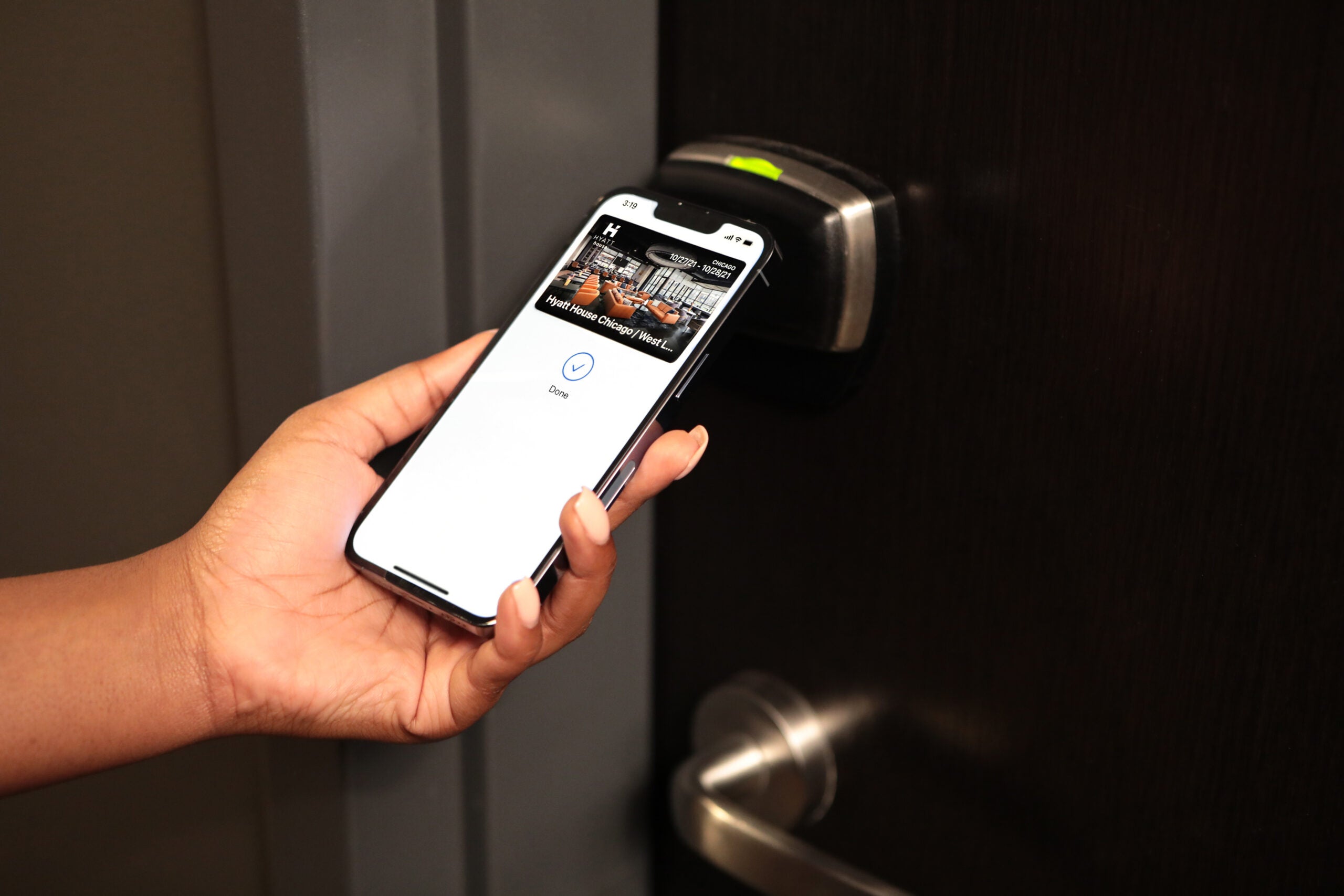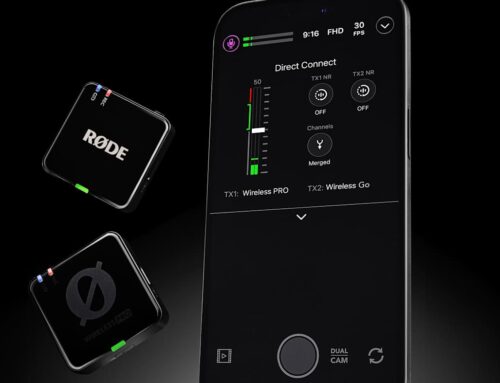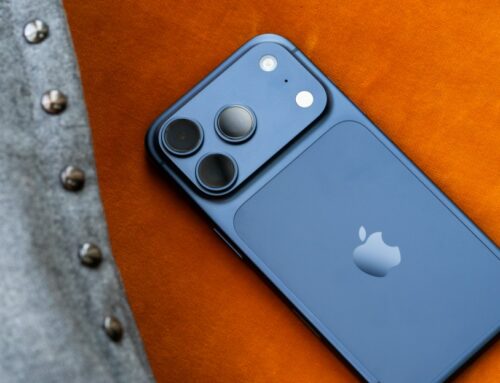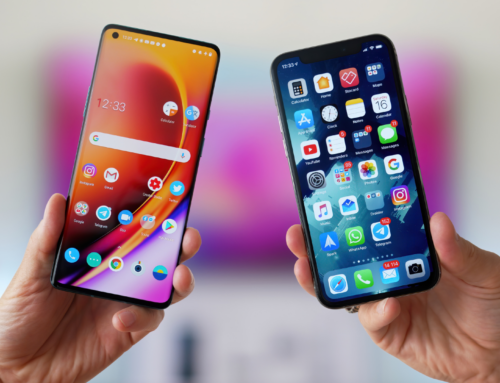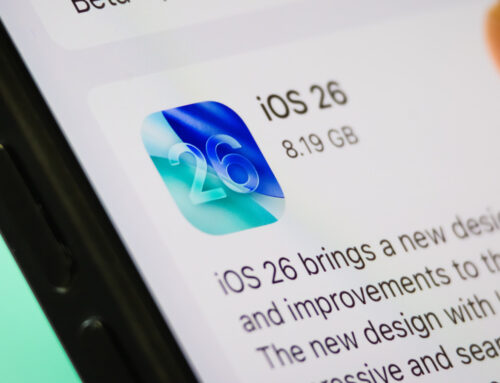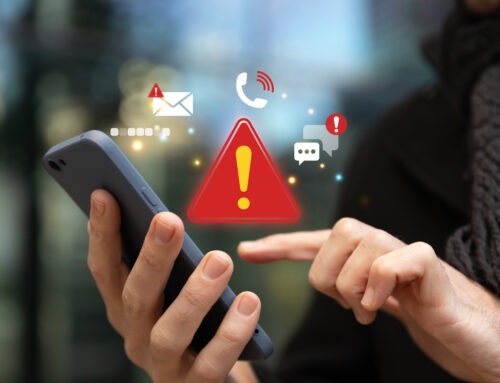Hyatt Hotels and Apple are working together to offer a plastic key-free experience to guests, the hotel chain announced Wednesday. Using Apple Wallet, guests will instead be able to use their phones to unlock hotel doors and other key-protected areas, such as elevators, fitness centers, and pools.
The new digital tool will be integrated with the hotel chain’s World of Hyatt app, and guests can download the app, which will prompt them to add their room key to their Apple Wallet after booking a reservation (to do so, users will need an iPhone running iOS 15 or an Apple watch running iOS 8). The key won’t become active until the guest checks in, at which point it will show the room number. Entering the key-enabled rooms will work similarly to using Apple Pay, requiring a quick tap of the phone screen to the built-in readers. The system works using Near Field Communication, or NFC, a short-range, contactless way of communicating between devices through radio waves. Hyatt says this tech allows them to utilize Apple’s existing privacy and security systems without sharing or storing the key on Apple’s servers.
[Related: Starbucks opens its first cashierless coffee shop]
If there are any changes—like a room switch or a late checkout—the hotel can update the Apple Wallet key remotely, reducing the amount of face time necessary between guests and hotel staff. And when the guest is checked out and ready to go, the digital key will deactivate.
For now, this option will only be available at six Hyatt hotels: the Andaz Maui at Wailea Resort, Hyatt Centric Key West Resort & Spa, Hyatt House Chicago/West Loop-Fulton Market, Hyatt House Dallas/Richardson, Hyatt Place Fremont/Silicon Valley, and the Hyatt Regency Long Beach. The company does expect to provide these digital keys at additional global properties, but it has not offered a timeline for this expansion.
[Related: Venmo and Amazon team up to streamline your checkout]
While Hyatt is the first hotel brand to give guests this option, Apple previously previewed this general functionality at its World Wide Developers Conference this past summer. It was shared as part of a larger announcement about the Apple Wallet’s enhanced applications for travel, including the ability to store identification cards like state IDs and driver’s licenses. The feature raised concerns from some experts and organizations, including the American Civil Liberties Union, due to potential privacy abuses and security challenges from hacking or ID tracking.
Still, as of September, eight states had signed on to allow residents to use these digital IDs at Transportation Security Administration (TSA) checkpoints at participating airports. The functionality was originally slated to roll out at the end of this year, beginning with Arizona and Georgia, but The Verge says it has been pushed to 2022.

